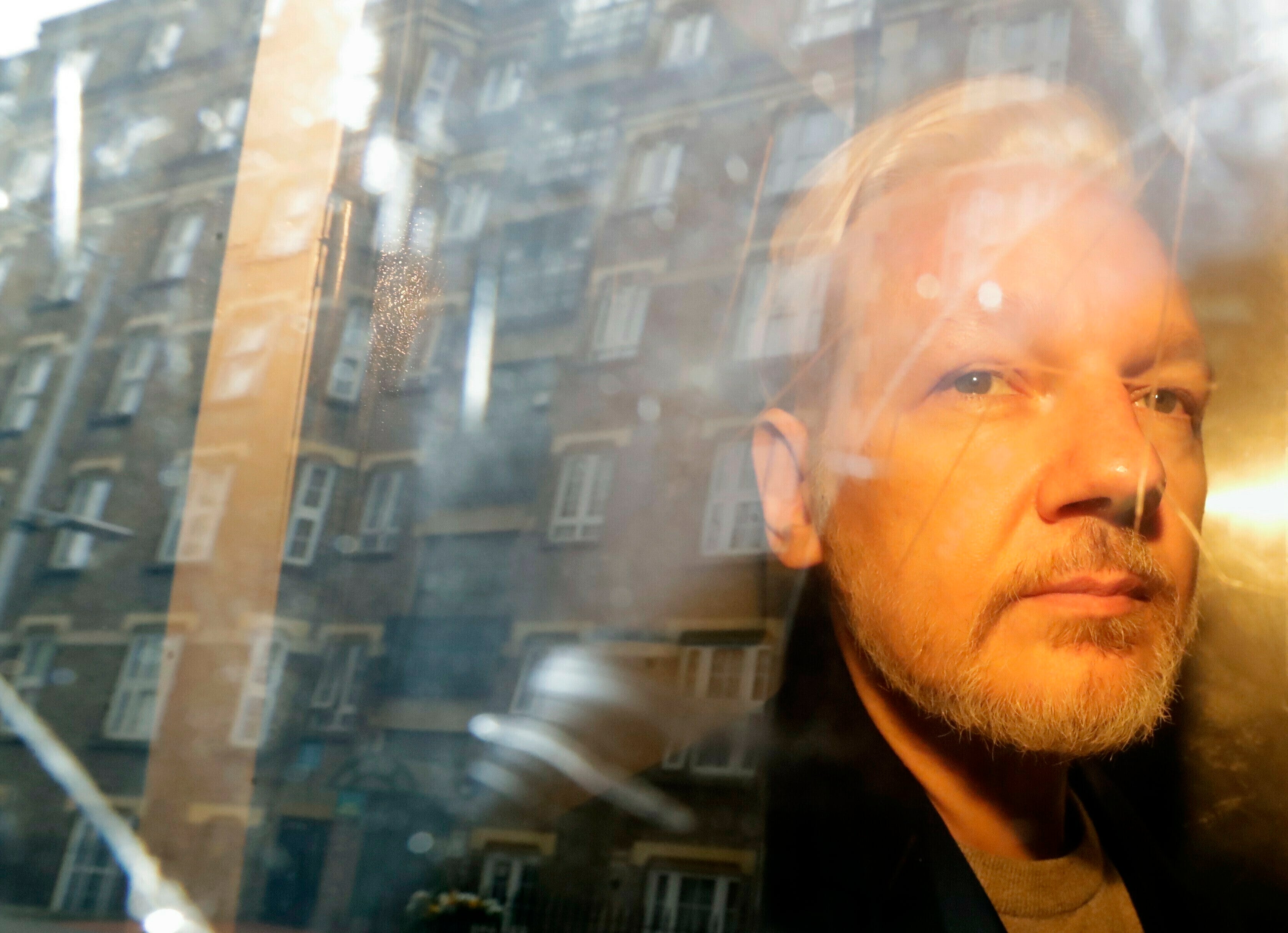Julian Assange appeals to UK court against extradition to US
WikiLeaks founder Julian Assange has appealed against the British’s government decision last month to order his extradition to the U.S. The appeal was filed Friday at the High Court

Your support helps us to tell the story
From reproductive rights to climate change to Big Tech, The Independent is on the ground when the story is developing. Whether it's investigating the financials of Elon Musk's pro-Trump PAC or producing our latest documentary, 'The A Word', which shines a light on the American women fighting for reproductive rights, we know how important it is to parse out the facts from the messaging.
At such a critical moment in US history, we need reporters on the ground. Your donation allows us to keep sending journalists to speak to both sides of the story.
The Independent is trusted by Americans across the entire political spectrum. And unlike many other quality news outlets, we choose not to lock Americans out of our reporting and analysis with paywalls. We believe quality journalism should be available to everyone, paid for by those who can afford it.
Your support makes all the difference.WikiLeaks founder Julian Assange has appealed against the British's government decision last month to order his extradition to the U.S.
The appeal was filed Friday at the High Court, the latest twist in a decade-long legal saga sparked by his website's publication of classified U.S. documents. No further details about the appeal were immediately available.
Assange's supporters staged protests before his 51st birthday this weekend, with his wife Stella Assange among people who gathered outside the Home Office on Friday to call for his release from prison.
Julian Assange has battled in British courts for years to avoid being sent to the U.S., where he faces 17 charges of espionage and one charge of computer misuse.
American prosecutors say the Australian citizen helped U.S. Army intelligence analyst Chelsea Manning steal classified diplomatic cables and military files that WikiLeaks later published, putting lives at risk.
To his supporters, Assange is a secrecy-busting journalist who exposed U.S. military wrongdoing in Iraq and Afghanistan.
A British court ruled in April that Assange could be sent to face trial in the U.S., sending the case to the U.K. government for a decision. Home Secretary Priti Patel signed an order on June 17 authorizing Assange’s extradition.
The Australian government has been under mounting pressure to intervene, but last month Prime Minister Anthony Albanese rejected calls for him to publicly demand that Washington drop its prosecution of Assange.
Assange’s supporters and lawyers maintain he was acting as a journalist and is entitled to First Amendment protections of freedom of speech. They argue that the case is politically motivated, that he would face inhumane treatment and be unable to get a fair trial in the U.S.
Assange remains in London’s high-security Belmarsh Prison, where he has been since he was arrested in 2019 for skipping bail during a separate legal battle. Before that, he spent seven years inside the Ecuadorian Embassy in London to avoid extradition to Sweden to face allegations of rape and sexual assault.
Sweden dropped the sex crimes investigations in November 2019 because so much time had elapsed, but British judges have kept Assange in prison pending the outcome of the extradition case.